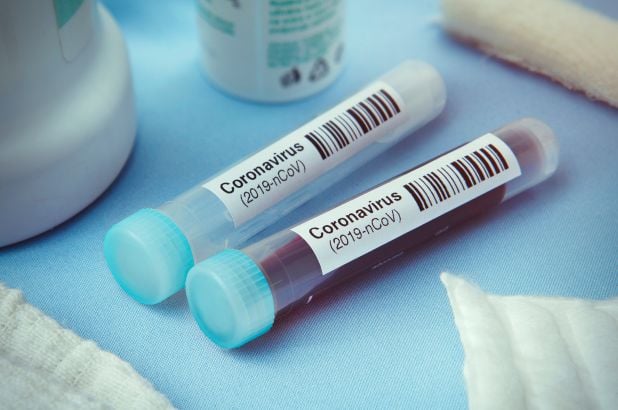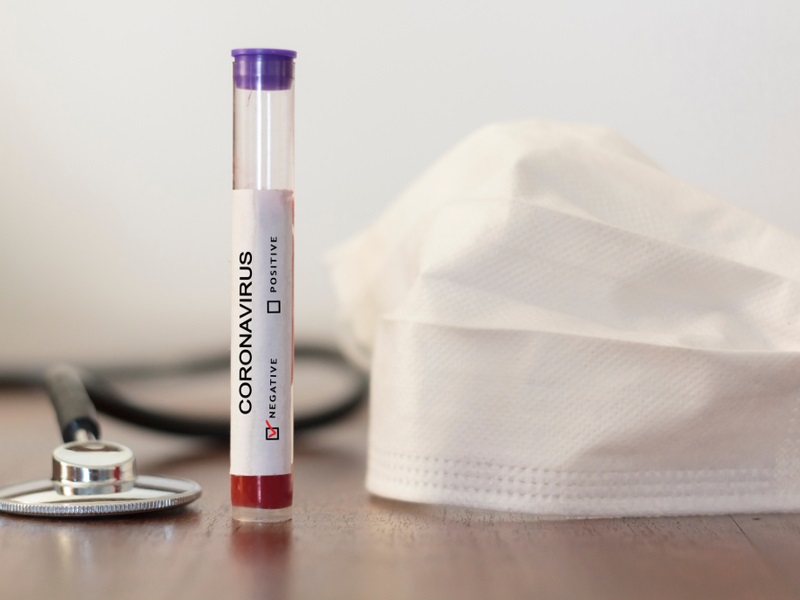Late Wednesday, five more cases of the coronavirus were confirmed in Nigeria — bringing the total number of those infected to 51.
With that number, Nigeria ranked 111 out of the 198 countries where the pandemic persists. But there is no need for cheers.
Here is why: As of the end of March 24, only 178 persons have been tested for COVID-19 in the country, according to data which TheCable obtained from the Nigeria Centre for Disease Control (NCDC) on Wednesday.
The data shows that between 10 and 20 persons on the average are tested in the country daily since the first case in February, 27, far below the rate obtainable in other countries.
Advertisement
This simply means not enough people are being tested, largely because the country is ill-equipped to deal with such a pandemic, in all ramifications.
For instance, there are only five laboratories in NCDC’s molecular laboratory network with the capacity to test for COVID-19 in Nigeria; two of those are in Lagos while Abuja, Edo and Osun have one each.
Also, there are reportedly less than 500 ventilators — used for the care of coronavirus patients — in the 36 states and the federal capital territory (FCT).
Advertisement
178 TESTS CONDUCTED IN 20 STATES AND FCT
| S/N | STATES | NO OF TESTS |
|---|---|---|
| 1 | Akwa Ibom | 1 |
| 2 | Adamawa | 1 |
| 3 | Bauchi | 1 |
| 4 | Bayelsa | 1 |
| 5 | Cross River | 2 |
| 6 | Delta | 1 |
| 7 | Ebonyi | 1 |
| 8 | Edo | 2 |
| 9 | Ekiti | 4 |
| 10 | Enugu | 1 |
| 11 | FCT | 52 |
| 12 | Kano | 2 |
| 13 | Katsina | 2 |
| 14 | Lagos | 88 |
| 15 | Nasarawa | 5 |
| 16 | Ogun | 4 |
| 17 | Ondo | 1 |
| 18 | Oyo | 1 |
| 19 | Plateau | 1 |
| 20 | Rivers | 6 |
| 21 | Yobe | 1 |
| 22 | TOTAL | 178 |
WHERE DOES NIGERIA STAND GLOBALLY? WHAT DOES W.H.O. SAY?
Since the country’s first case of the infection, the number of confirmed cases has sparsely grown, with 50 more across eight states and the nation’s capital in the space of one month.
But how reliable can that data be?
Advertisement
There have been complaints on social media about citizens, who feel they may have been exposed to the virus, or who are showing symptoms, but not getting tested.
@NCDCgov. Returnee from Europe. pic.twitter.com/ol8K0aOt5O
— Ayobami (@dondekojo) March 16, 2020
Advertisement
Indeed, the current figure of confirmed cases might not be a true reflection of the state of things, considering that many patients around the world did not show any symptoms before they tested positive. Most residents in Nigeria’s densely populated cities such as Lagos are exposed to risk from asymptomatic carriers who may not know they have the virus.
In Iceland, where the government said it has tested a higher proportion of inhabitants more than any other country, about half those who tested positive have no symptoms of the virus; in China; as many as a third of the people who test positive show delayed symptoms or none at all, according to the South China Morning Post; in South Korea, more than 20% of asymptomatic cases reported did not develop symptoms even after being hospitalised.
Advertisement
Even the World Health Organisation (WHO) has continued to advocate for mass testing — which experts say has a number of other benefits — as one of the measures to curb the spread of the disease.
Tedros Ghebreyesus, WHO director-general, re-echoed that recommendation recently: “We have a simple message for all countries: test, test, test. Test every suspected case. If they test positive, isolate them and find out who they have been in close contact with up to 2 days before they developed symptoms, and test those people too.”
Advertisement
This system of mass testing has been working for a number of countries such as South Korea which, in addition to rigorous contact tracing and mandatory quarantine for those exposed, tests more than 20,000 people daily, and South Korea has tested more than 270,000 people.
Even South Africa has conducted more than 15,500 tests so far.
Advertisement
Now that the new medical supplies including testing kits which Jack Ma, Chinese billionaire, donated to Nigeria have arrived, it is hoped that more Nigerians who need to be tested will be tested. If not, the country’s fragile health system is going to be overwhelmed and that will not spell any good for its 180 million citizens, about half of whom are living in extreme poverty.
Add a comment







